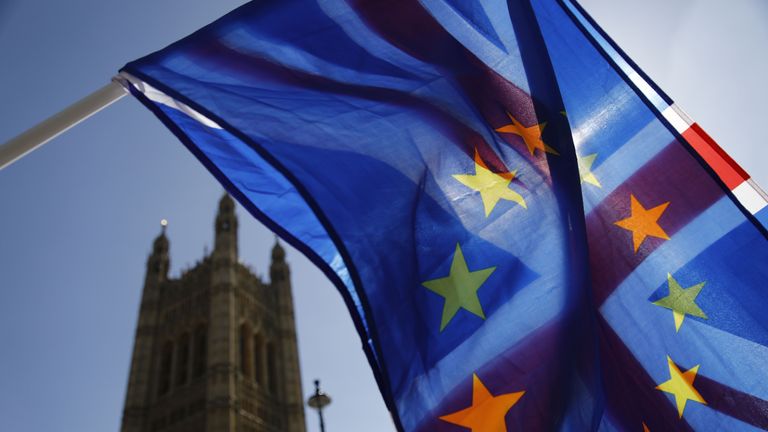Health Secretary Matt Hancock has faced a backlash after claiming Brexit helped the UK become the first country in the world to have a clinically authorised coronavirus vaccine.
The Pfizer/ BioNTech jab has been approved by Britain’s medicines regulator – but the European Medicines Agency (EMA) has yet to do the same for the EU.
Mr Hancock claimed European countries are “moving a little bit more slowly” and stressed the vaccine had gone through all the proper checks, but Germany has said it deliberately did not move too quickly to boost confidence it will work.
Within hours of the significant moment, political tensions were flaring.
Mr Hancock told Times Radio that “because of Brexit we’ve been able to make a decision to do this based on the UK regulator, a world-class regulator, and not go at the pace of the Europeans”.
“We do all the same safety checks and the same processes, but we have been able to speed up how they’re done because of Brexit,” he added.
And Business Secretary Alok Sharma also claimed: “In years to come, we will remember this moment as the day the UK led humanity’s charge against this disease.”
But the message riled a number of German politicians, including the country’s ambassador to the UK, Andreas Michaelis, who tweeted in response: “Why is it so difficult to recognize this important step forward as a great international effort and success?
“I really don’t think this is a national story. In spite of the German company BioNTech having made a crucial contribution this is European and transatlantic.”
And Germany’s health minister, Jens Spahn, said the UK had used an emergency process to authorise its vaccine use, while politicians there had decided against that strategy to boost confidence in the jab’s safety.
Peter Liese, a German MEP and member of Chancellor Angela Merkel’s governing CDU party, also said the EMA was avoiding approving the vaccine because a “careful review…will give people additional security”.
He added: “The information in the last few weeks was based mainly on press releases and much of the data has only been available to the authorities for a few hours.
“With such a large-scale vaccination campaign, you have to look carefully and carefully check the information provided by the companies.
“I have confidence in BioNTech, but they rightly say ‘trust is good, control is better’.
“Emergency approval is a tool normally intended for patients suffering from a serious and incurable disease for whom there is no other means of saving life or physical integrity. This is not the case with Corona.”
Dr June Raine, Medicines and Healthcare products Regulatory Agency, clarified on Wednesday that the vaccine’s approval was made using provisions under European law, which still binds the UK until the end of the year.
From start to finish, development of this vaccine has been streamlined
Analysis by Thomas Moore, science correspondent
Time and again, the experts at the vaccine briefing said the public can have every confidence in its “safety, effectiveness and quality”.
They know that some people are hesitant about having the jab, concerned that it has been developed so fast.
But the scientists – all independent of government – say no corners have been cut.
Pfizer accelerated development by overlapping different phases of clinical trials. The studies themselves were just as rigorous as with any other medicine, with large numbers of volunteers.
And the regulatory authorities started what’s called a rolling review, assessing data as soon as it became available, back in June.
By the time Pfizer handed over the final batch of documents on 30 November, much of the checking process had already been done.
From start to finish, development of this vaccine has been streamlined.
No serious side effects have been seen in the trials. But the regulatory authorities will continue to monitor the vaccine’s safety as it is rolled out.
That is sensible and reassuring.






